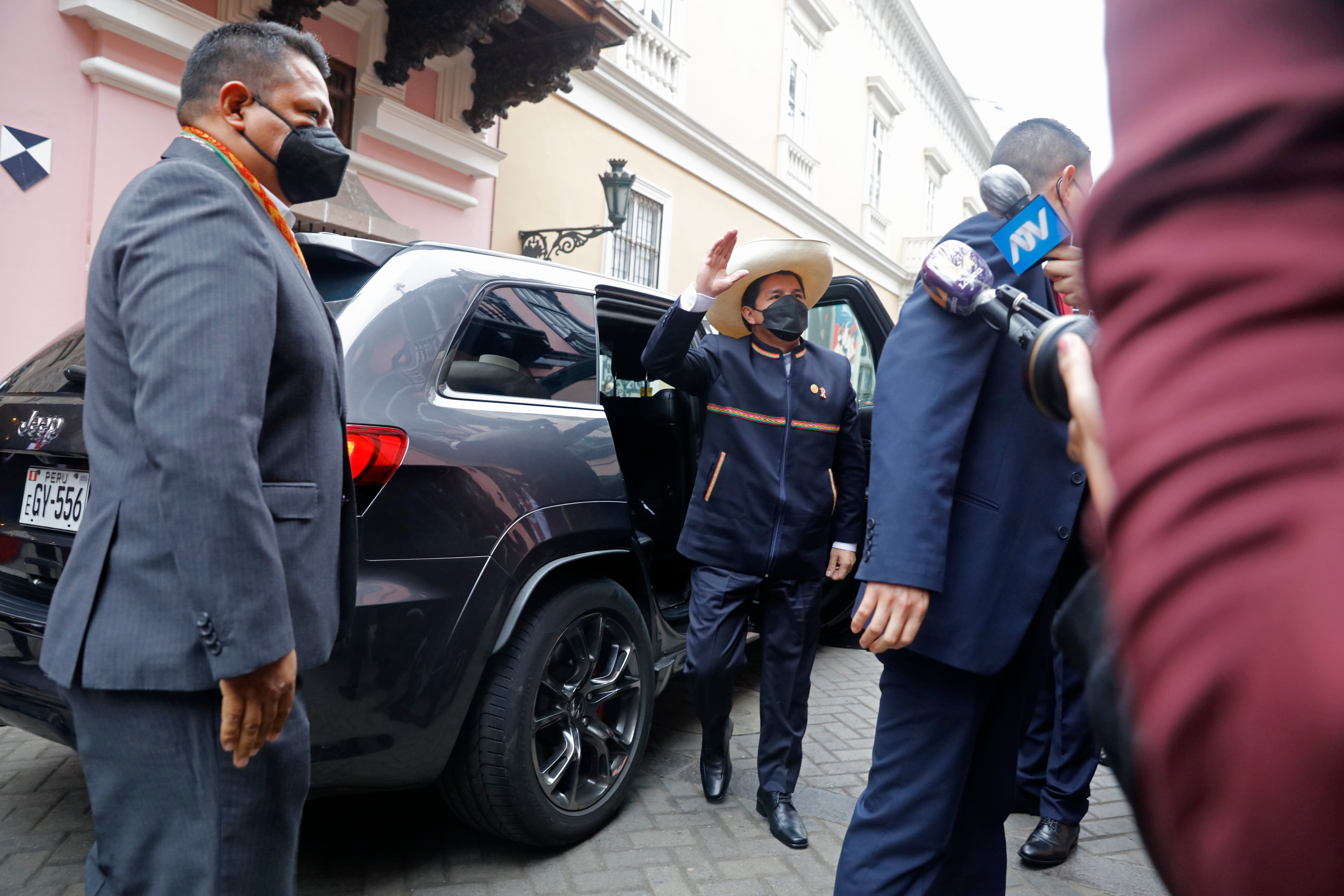Leftist political novice to be sworn in as Peru's president
A leftist political novice who has promised to be a champion of his country’s poor is set to be sworn in as Peru’s president

Your support helps us to tell the story
From reproductive rights to climate change to Big Tech, The Independent is on the ground when the story is developing. Whether it's investigating the financials of Elon Musk's pro-Trump PAC or producing our latest documentary, 'The A Word', which shines a light on the American women fighting for reproductive rights, we know how important it is to parse out the facts from the messaging.
At such a critical moment in US history, we need reporters on the ground. Your donation allows us to keep sending journalists to speak to both sides of the story.
The Independent is trusted by Americans across the entire political spectrum. And unlike many other quality news outlets, we choose not to lock Americans out of our reporting and analysis with paywalls. We believe quality journalism should be available to everyone, paid for by those who can afford it.
Your support makes all the difference.Pedro Castillo, a leftist political novice who has promised to be a champion of his country’s poor, on Wednesday will be sworn in as Peru’s president.
The rural teacher who has never held political office before will assume office less than two weeks after he was declared the winner of the June 6 runoff election. He will succeed President Francisco Sagasti, whom Congress appointed in November to lead the South American nation after weeks of political turmoil.
Castillo, who up until days ago lived with his family in an adobe home deep in the Andes will face a deeply divided Congress that will make it extremely challenging for him to fulfill his ill-defined campaign promises to aid the poor, who are now estimated to make up about a third of the country’s population. His political savviness will be immediately tested, and his ability to reach agreements could even determine if Congress allows him to finish his term.
“The government of Pedro Castillo still maintains us with considerable uncertainty; we still do not have clear his main lines of policy,” said Claudia Navas, an analyst with the global firm Control Risks. “However, we foresee that possibly, due to the characteristics of the Peruvian political system and the current general political and economic situation of the country, Castillo will maintain a more pragmatic position than he announced during the campaign.”
“The key is to build those consensuses and add strength to the proposals on how he is going to achieve them,” she added.
Castillo defeated his opponent, right-wing career politician Keiko Fujimori, by just 44,000 votes. Peru’s poor and rural citizens supported Castillo and his slogan “No more poor in a rich country,” while the elites favored Fujimori, the daughter of controversial former president Alberto Fujimori. He stunned voters and observers by rising from a pool of 18 candidates and advancing to the runoff, in first place no less.
Castillo’s initial proposal to nationalize the nation’s mining industry set off alarm bells among business leaders. While that stance has softened, he remains committed to rewriting the constitution that was approved under the regime of Fujimori’s father.
Peru is the second largest copper exporter in the world and mining accounts for almost 10% of its GDP and 60% of its exports. Its economy has been crushed by the coronavirus pandemic, increasing the poverty level and eliminating the gains of a decade.
In November, Peru had three presidents in a single week after one was impeached by Congress over corruption allegations and protests forced his successor to resign. Lawmakers then appointed Sagasti.
Thousands of small businesses have closed over the past 16 months, and the political uncertainty following the election has led to the withdrawal of millions of dollars from local banks.
Enrique Castellanos, an economics professor at the Peruvian University of the Pacific, told a radio station that Castillo must build trust in the business community.
“Confidence takes time to maintain and it goes away very quickly,” he said.
The pandemic has pushed Peru’s medical and cemetery infrastructure beyond capacity. It has also deepened people’s mistrust of government as it mismanaged the COVID-19 response and a secret vaccination drive for the well-connected erupted into a national scandal.
Castillo has promised COVID-19 vaccines for all Peruvians.
Castillo until recently was a rural schoolteacher in the country’s third-poorest district. The son of illiterate peasants led a teachers’ strike in 2017. He is married and has two children.
His swearing in ceremony will be attended by U.S. Secretary of Education Miguel Cardona, who was also a schoolteacher, the King of Spain Felipe VI and several South American presidents, among them the leaders of Chile Sebastián Piñera; Colombia, Iván Duque; and Ecuador, Guillermo Lasso.
___
Garcia Cano reported from Mexico City.